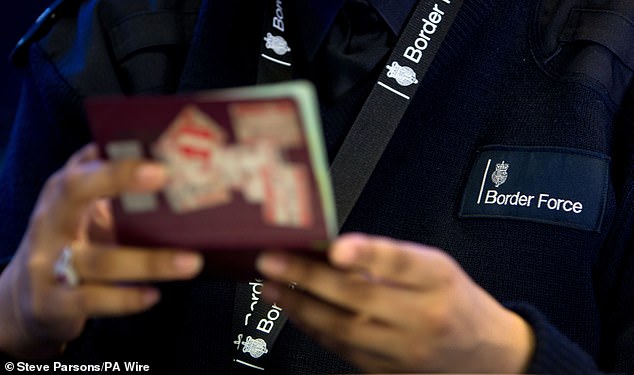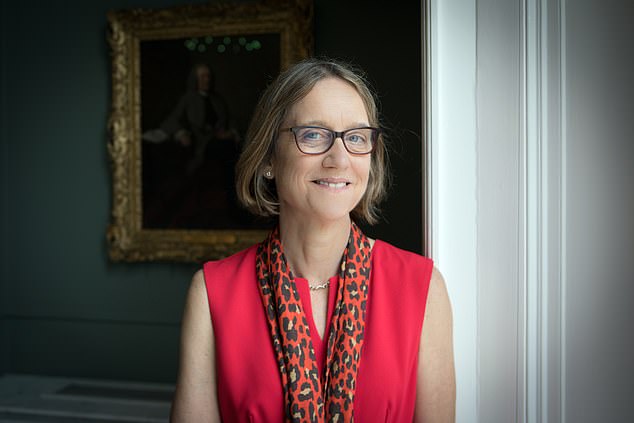High visa fees are deterring some of the world’s most highly skilled workers from joining Britain’s science and entrepreneurial sectors, experts have warned.
Leading scientists have now called on ministers to review the upfront costs that must be paid by workers in science, technology, engineering and maths fields, who play a key role in boosting Britain’s economy.
The cost of securing permission to work here has spiralled over the past five years, giving a boost to global competitors – while the visa regime has failed to curb huge levels of immigration.
Government figures put net migration in the year to June 2023 at 728,000, driven mainly by the arrival of more than 470,000 foreign workers.
Professor Alison Noble, of the Royal Society, said: ‘There is a worldwide shortage of scientists and because it’s a worldwide shortage, there’s worldwide competition. If the visa process is not attractive then that will be a reason why people choose not to come. They will end up with multiple job offers, and they will look at the reasons why they might go to one country or another.’
The Royal Society published research last year which showed visa fees have risen by 126 per cent since 2019. The UK’s fees are higher than any of the 17 other leading nations scrutinised by the report, including the United States, Japan, France and Switzerland.
Meanwhile, some countries have reduced their fees. France slashed its skilled worker visa costs by 92 per cent to £278 in 2023.
Visa costs – including the immigration health surcharge intended as a contribution towards NHS care – must be paid upfront for the duration of the visa. So a scientist applying to come here for five years might pay up to £1,639 for a visa plus a £5,175 health surcharge.


The fees also apply for spouses and children, so the total could be tens of thousands of pounds.
Cancer Research UK has said it spent more than £477,000 on visas for researchers in 2022-23, with costs set to rise by more than £210,000 per year.
Professor Noble added: ‘Why can’t you pay annually, for example? This would then reduce this barrier.’
John Longworth, of the Independent Business Network of Family Businesses, said: ‘There needs to be a balanced approach where we don’t overcharge people who are making a net contribution to the economy. They could get a discount on their visa fees.’
A government spokesman said: ‘We are grateful for the incredible work skilled international professionals do in the UK.
‘Our visa fees have been informed by the principle that those who use and benefit from the immigration system should contribute towards the cost of operating it, reducing the level of taxpayer funding that would otherwise be required.’
This post was originally published on here






